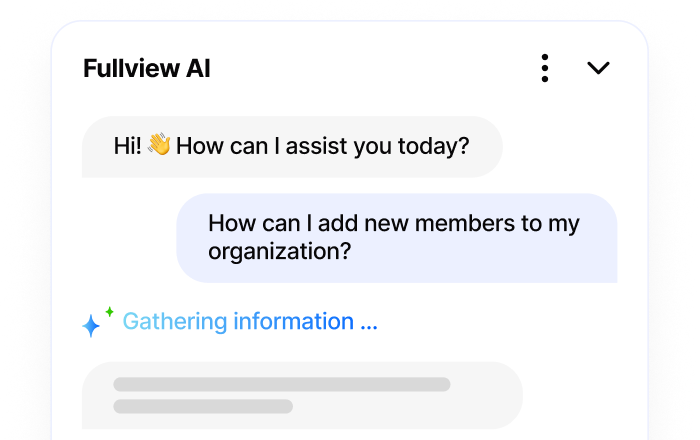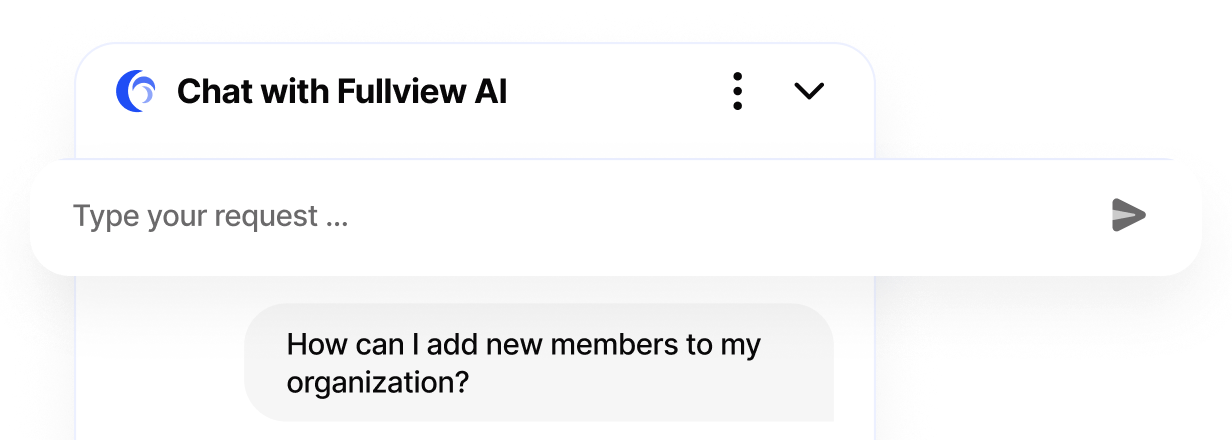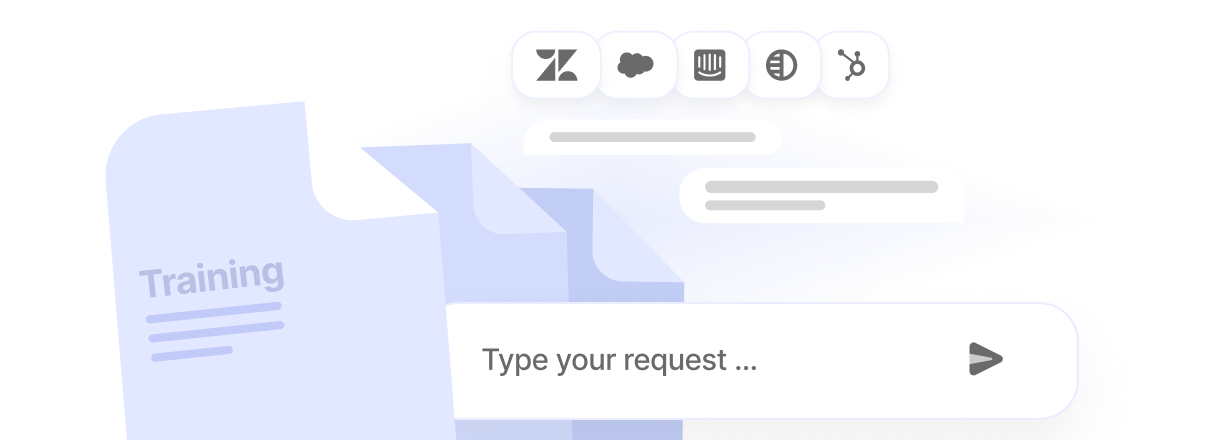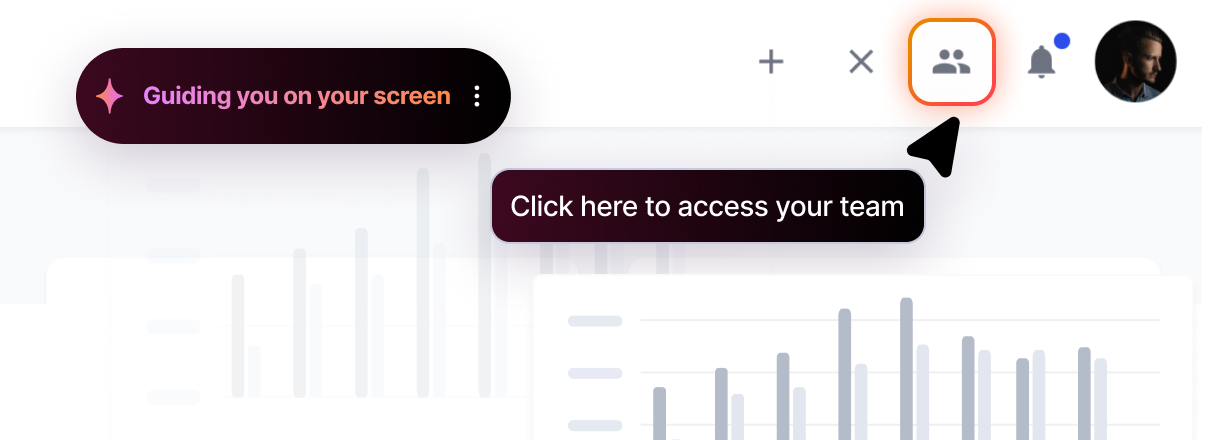Front's shared inbox approach served many teams well in the email-centric support era, but customer expectations have fundamentally shifted. Modern users don't want to explain their problems through endless back-and-forth messages. They expect AI agents that can see their screens, understand their context, and actually solve issues rather than just manage conversations. This comprehensive analysis evaluates the most compelling Front alternatives, with special focus on platforms that go beyond traditional ticket shuffling to deliver autonomous problem resolution.
How We Evaluated and Ranked Front Alternatives
We conducted extensive research across 50+ customer support platforms to identify the top 10 Front alternatives that can handle the reality of modern software support. Our evaluation prioritizes platforms offering genuine innovation beyond traditional ticketing systems, with particular emphasis on AI capabilities that actually resolve issues rather than just route them around. This ranking focuses on platforms that understand the difference between managing conversations and solving problems.
Evaluation Criteria and Scoring Model
Our scoring methodology weighs five critical factors that determine long-term support success in 2025:
- AI Capability Depth: Measures whether AI can take autonomous actions or just provide canned responses
- Visual Problem-Solving: Assesses ability to guide users through interfaces versus text-only explanations
- Pricing Transparency: Evaluates total cost of ownership including hidden AI add-on fees
- Integration Ecosystem: Counts native connectors that work without expensive custom development
- Enterprise Compliance: Checks GDPR, SOC 2, PCI, and HIPAA-BAA certifications without additional costs
Research shows that autonomous agents will save 2.5 billion work hours by 2025 through the shift from instructional to executory support models. Meanwhile, traditional platforms continue charging premium fees for basic AI features that still require human intervention.
Data Sources and Methodology
Our evaluation combines hands-on testing of autonomous capabilities with analysis of real-world implementation costs. We tested each platform's ability to actually resolve issues rather than just categorize them, analyzed total cost of ownership including AI add-ons, and evaluated enterprise deployment complexity.
Primary Research Methods:
- Live testing of AI agents with complex software scenarios
- Total cost analysis including all hidden fees and add-ons
- Integration testing with popular helpdesk and CRM platforms
- Enterprise security and compliance verification
Our transparent, results-driven ranking process prioritizes platforms that can demonstrate measurable issue resolution rates rather than just ticket management efficiency. We weight actual problem-solving capability at 40% of the total score because conversation management without resolution is obsolete in 2025.
#1 Fullview - AI-First Agentic Customer Service Platform
Fullview stands as the clear Front alternative for organizations ready to move beyond conversation management to autonomous problem resolution. Fullview's AI combines screen context, knowledge base articles, and user behavior analysis to deliver more contextually aware and accurate support than typical AI agents. Unlike traditional platforms that shuffle tickets between agents, Fullview's autonomous AI actually sees, understands, and solves user problems directly within applications.
Autonomous AI Actions and Conversational Intelligence
Fullview revolutionizes customer support by combining sophisticated conversational AI with autonomous execution capabilities:
Conversational AI Foundation:
- Natural Language Processing: Engages users through intelligent conversation while simultaneously analyzing their screen context
- Multi-Channel Integration: Works with Intercom Fin, Zendesk Ultimate, Ada and other chatbots without requiring workflow changes
- Contextual Understanding: Combines chat responses with real-time screen analysis for complete issue comprehension
Autonomous Execution Layer:
- Visual UI Recognition: Fullview AI analyzes your users screen and autogenerates visual tours for any scenario on-demand
- Direct Action Capability: Unlike chatbots that only provide instructions, Fullview can click buttons, fill forms, and complete workflows autonomously
- Seamless Escalation: Seamlessly escalate from AI guidance to human guidance. Support agents can visually guide users with embedded remote access and cobrowsing
Fullview operates as both a sophisticated chatbot that can answer questions through natural conversation AND an autonomous agent that can see user interfaces, navigate applications, and take direct action to resolve issues visually.
This dual capability addresses the fundamental limitation plaguing traditional support: the gap between understanding problems and actually solving them.
Enterprise-Grade Pricing and Security
Fullview offers outcome-based pricing that scales with resolution success rather than conversation volume:
- Flexible Custom Pricing: Fullview offers flexible, outcome-based pricing, tailored to your business size and conversation volume
- No Per-Agent Penalties: Unlike traditional platforms, pricing focuses on results rather than headcount
- Enterprise Security: Fullview is SOC2 and GDPR compliant, built on enterprise-grade security standards. No customer data is used to train models
- Quick Implementation: Not hard at all, you just paste a line of code in to your product, and Fullview AI can start helping users soon after
Ideal Use Cases
Fullview delivers maximum value for organizations tired of traditional ticket shuffling:
- Complex SaaS Applications: When users need actual guidance through interfaces rather than generic instructions
- Financial Services: Strict compliance requirements with autonomous problem resolution capabilities
- High-Growth Teams: Organizations seeking genuine AI deflection rather than expensive human agent scaling
- Product-Led Companies: Teams needing to reduce user friction through autonomous assistance rather than reactive support
#2 Zendesk - Enterprise Ticketing with Expensive AI Add-Ons
Zendesk remains entrenched in traditional ticket management workflows, though at significantly higher costs than many teams realize. Despite Zendesk's promises of supporting various customer operations, it can charge up to $89 per agent for basic features like a self-service customer portal. What most buyers discover too late is that Zendesk's AI capabilities require expensive add-ons that dramatically inflate total costs.
Advanced Ticketing with AI Limitations
Zendesk's comprehensive feature set supports complex ticket workflows but falls short on autonomous problem resolution:
- Sophisticated Ticket Routing: Advanced automation rules for categorizing and routing issues between human agents
- 1,000+ Integrations: Extensive marketplace connections requiring additional configuration and maintenance
- Limited AI Capabilities: Many of the most useful AI features, like intelligent triage that automatically categorizes tickets or macro suggestions to speed up agent workflows, are locked behind the Advanced AI add-on
- Multi-Brand Management: Separate workflows for different product lines, though with significant complexity overhead
Hidden Costs and Pricing Reality
Zendesk's actual pricing structure often shocks buyers after implementation:
Critical Reality Check: If your team is on the Suite Professional plan ($115/agent), this add-on brings your cost up to $165 per agent each month. That's a nearly 45% price jump before you even start paying for usage.
Enterprise Ticketing Limitations
Zendesk excels at managing conversations between humans but fails at autonomous resolution. Since Zendesk was acquired by private equity in 2022, the platform has faced several challenges. New feature releases have slowed down, prices have gone up, and customer support has deteriorated. The platform remains ideal for large enterprises requiring sophisticated human agent workflows but offers minimal innovation in autonomous problem-solving.
#3 Freshdesk - Budget-Friendly AI with Per-Session Penalties
Freshdesk positions itself as the affordable alternative but hides significant AI costs behind per-session pricing that penalizes successful automation. For any business with a healthy amount of support tickets, this pay-as-you-go model is unpredictable and can easily run into thousands of dollars. You essentially get punished for successfully deflecting more tickets.
AI Automation with Cost Traps
Freshdesk's Freddy AI provides basic automation but with expensive scaling limitations:
- Freddy AI Classification: Automatically categorizes tickets using basic pattern recognition
- Limited Autonomous Capability: Provides scripted responses but cannot take actions within user applications
- Expensive AI Add-Ons: Freddy AI Copilot: This add-on is supposed to help your human agents by drafting replies and summarizing tickets. It costs an extra $29 per agent, per month
- Per-Session Penalties: Freddy AI Agent: This is for fully automated ticket resolution, and it's where costs can really get out of hand. It's priced at $100 per 1,000 sessions
Deceptive Pricing Structure
Freshdesk's seemingly affordable base pricing quickly escalates with necessary AI features:
- Growth Plan: $15/agent/month for basic features without meaningful AI capabilities
- Pro Plan: $49/agent/month plus $29/agent for AI assistance plus usage-based charges
- Hidden Reality: Most essential features are only available in highly priced plans, meaning users must spend a lot to enjoy these features
Growing SMB Limitations
Freshdesk appeals to cost-conscious SMBs but delivers limited value for teams needing actual problem resolution rather than ticket categorization. The lower pricing plans lack many essential features, forcing users to upgrade to a higher plan. The platform works for basic FAQ deflection but fails to address complex software support scenarios that require visual guidance or autonomous actions.
#4 Help Scout - Email-Centric Simplicity with No AI Innovation
Help Scout maintains the email-first approach that feels increasingly outdated in 2025. While earning 4.4/5 stars for simplicity, the platform offers no meaningful AI automation or visual problem-solving capabilities, making it suitable only for organizations content with pure human-driven support workflows.
Traditional Email Management
Help Scout focuses on collaborative email handling without modern AI enhancement:
- Shared Inbox Experience: Team collaboration within familiar email interface, but limited to text-based responses
- Basic Knowledge Base: Static articles without AI-powered suggestions or dynamic content generation
- No Visual Guidance: Cannot provide screen-based assistance or interface-level problem resolution
- Human-Only Workflows: All complex issues require human intervention with no autonomous resolution options
Pricing Without Innovation
Help Scout's pricing reflects its limited feature set:
- Standard Plan: $20/user/month for email collaboration and basic reporting
- Plus Plan: $40/user/month adds live chat but no AI capabilities
- No AI Investment: Unlike competitors, Help Scout hasn't developed autonomous support capabilities
Outdated for Modern Support
Help Scout works for teams that prefer email-only workflows but lacks the AI innovation necessary for competitive customer experience in 2025. The platform's simplicity becomes a limitation when users need visual guidance, autonomous actions, or intelligent problem resolution beyond basic FAQ responses.
#5 Intercom - Conversational Platform with Chat-Only AI
Intercom excels at real-time messaging and product tours but remains limited to conversational AI without autonomous execution capabilities. The platform's strength in user engagement contrasts sharply with its inability to actually resolve complex issues that require interface-level assistance.
Advanced Chat with Limited Resolution
Intercom's conversational focus provides engagement without autonomous problem-solving:
- Real-Time Messaging: Intelligent routing and contextual conversations, but solutions require human completion
- Product Tours: Interactive onboarding flows that guide users but cannot take actions on their behalf
- Custom Bot Limitations: Automated conversations that collect information but cannot execute solutions
- Integration Complexity: Extensive API connections requiring significant development investment
Premium Pricing for Chat Features
Intercom's usage-based pricing can escalate quickly:
- Starter Plan: $39/month for up to 1,000 active users with basic automation
- Premium Tiers: Scale with user count, becoming expensive for growing SaaS companies
- No Visual Problem-Solving: Despite premium pricing, cannot provide screen-level assistance or autonomous actions
Product Team Focus with Resolution Gaps
Intercom fits SaaS teams needing user engagement but falls short when customers require actual problem resolution rather than conversation management. The platform excels at collecting user intent but cannot bridge the gap to autonomous issue resolution.
#6 HubSpot Service Hub - CRM Integration Without AI Innovation
HubSpot Service Hub provides seamless CRM integration for organizations already invested in the HubSpot ecosystem, but offers minimal AI automation and no visual problem-solving capabilities. The platform's strength lies in data unification rather than autonomous support innovation.
CRM-Centric Support Management
Service Hub focuses on customer lifecycle integration rather than issue resolution:
- Unified Customer Profiles: Complete interaction history without AI-powered insights or automated actions
- Workflow Automation: Basic trigger-based routing without intelligent problem categorization
- No Autonomous Capabilities: All complex issues require human agent intervention
- Limited AI Innovation: Basic chatbot functionality without visual guidance or interface interaction
Predictable HubSpot Pricing
Service Hub pricing reflects its integration focus:
- Free Tier: Basic ticketing with 1,000 tickets/month limit
- Professional: $45/month with automation but no advanced AI features
- Enterprise: $120/month with reporting but still no autonomous resolution capabilities
CRM Lock-In Without Innovation
Service Hub delivers maximum value for HubSpot-centric organizations seeking data unification but provides minimal innovation in autonomous problem resolution. Teams already using HubSpot CRM benefit from seamless integration, but the platform lags significantly behind AI-first alternatives in actual issue resolution capabilities.
#7 Gmelius - Gmail Enhancement Without AI
Gmelius transforms Gmail into a collaborative support platform but offers no AI automation or visual problem-solving capabilities. The platform addresses Google Workspace lock-in challenges but fails to provide the autonomous support features necessary for competitive customer experience.
Gmail-Native Collaboration
Gmelius adds team features to Gmail without modern AI enhancement:
- Kanban Board Views: Visual ticket organization without AI-powered routing or prioritization
- Internal Chat: Team collaboration that still requires manual problem resolution
- No Autonomous Features: Cannot provide visual guidance or take actions within customer applications
- Basic Automation: Simple rules-based routing without intelligent problem categorization
Google Workspace Pricing
Gmelius pricing starts at $12/user/month for basic collaboration:
- Basic Plan: Gmail enhancement with shared labels and internal chat
- Business Plan: $20/user/month adds security features but no AI capabilities
- No AI Investment: Platform focuses on Gmail integration rather than autonomous support innovation
Gmail Integration Without Innovation
Gmelius works for Google Workspace teams seeking familiar interfaces but provides no competitive advantage in autonomous problem resolution. The platform's Gmail-native approach appeals to existing users but lacks the AI capabilities necessary for efficient modern support operations.
#8 Missive - Real-Time Collaboration Without Autonomy
Missive bridges email and chat for team collaboration but offers no AI automation or autonomous problem-solving capabilities. The platform's threaded discussions improve internal coordination but fail to provide the autonomous resolution features that modern support teams require.
Collaborative Communication Focus
Missive enables team communication without AI-powered resolution:
- Threaded Internal Chats: Team discussions that still require manual problem resolution
- Live Collaborative Editing: Multiple agents editing responses without AI assistance or automation
- No Visual Problem-Solving: Cannot provide screen-based guidance or interface-level assistance
- Manual Escalation: All complex issues require human intervention and coordination
Team Collaboration Pricing
Missive charges $20/user/month for collaborative features:
- Standard Plan: Email and chat collaboration without AI capabilities
- Business Plan: $35/user/month with analytics but no autonomous features
- No AI Development: Platform invests in collaboration rather than autonomous problem resolution
Remote Team Communication Limits
Missive serves remote teams needing instant communication but provides no autonomous problem-solving capabilities. The platform's unified communication approach reduces context switching but cannot bridge the gap to actual issue resolution without human intervention.
#9 Crisp - Multi-Channel Chat with Basic Bot Functionality
Crisp provides omnichannel chat capabilities with basic AI chatbot functionality but lacks the autonomous execution and visual guidance necessary for complex problem resolution. The platform's flat-rate pricing appeals to startups but delivers limited innovation compared to autonomous AI alternatives.
Multi-Channel Chat Management
Crisp consolidates messaging channels without advanced problem resolution:
- WhatsApp Integration: Cross-platform messaging that still requires human resolution of complex issues
- Basic AI Chatbot: FAQ responses without autonomous action capabilities or visual guidance
- No Interface Interaction: Cannot provide screen-level assistance or execute solutions within applications
- Manual Escalation: All complex scenarios require human agent intervention
Flat-Rate Pricing Structure
Crisp's unlimited agent pricing provides cost predictability:
- Starter Plan: $25/month for unlimited agents across all channels
- Pro Plan: $95/month with analytics but limited AI automation
- Basic Automation: Simple chatbot responses without autonomous problem-solving capabilities
Startup-Focused Limitations
Crisp appeals to early-stage companies seeking predictable chat costs but fails to provide the autonomous resolution capabilities that create competitive advantages. The platform's multi-channel approach consolidates communications without delivering the AI innovation necessary for efficient problem resolution.
#10 Kayako - Enterprise Omnichannel with Legacy Architecture
Kayako serves enterprise organizations with sophisticated routing requirements but operates on legacy architecture that prioritizes human agent workflows over autonomous problem resolution. Despite comprehensive compliance certifications, the platform lacks the AI innovation necessary for competitive support operations in 2025.
Complex Enterprise Routing
Kayako's enterprise features focus on human workflow optimization:
- Multi-Department Routing: Sophisticated assignment rules that still require human resolution
- Global Support Handoffs: Time zone coordination without autonomous resolution capabilities
- Legacy Architecture: Built for human agent efficiency rather than autonomous problem-solving
- No Visual Guidance: Cannot provide screen-level assistance or interface interaction
Premium Enterprise Pricing
Kayako's pricing reflects its enterprise complexity:
- Enterprise Plan: $95/agent/month for comprehensive routing and compliance
- Extensive Compliance: GDPR, SOC 2, ISO 27001 certifications with dedicated support
- High Implementation Costs: Complex setup requiring significant configuration and training investment
Enterprise Workflow Without Innovation
Kayako fits large enterprises with complex routing requirements but provides minimal innovation in autonomous problem resolution. The platform's comprehensive compliance and routing capabilities appeal to regulated industries, but the lack of AI-powered autonomous features makes it increasingly obsolete compared to modern alternatives.
How to Choose the Right Front Alternative for Your Team
The fundamental question in 2025 isn't which platform manages tickets best, but which one can actually resolve customer issues autonomously. Traditional help desk platforms excel at organizing conversations between humans, but modern customers expect AI that can see their problems and solve them directly. This shift from conversation management to autonomous resolution should drive your platform selection.
Assess Your AI Capability Requirements
Evaluate platforms based on actual problem-solving capability rather than just conversation management:
- Autonomous Execution Needs: Do you need AI that can take actions within applications or just manage chat responses?
- Visual Problem-Solving Requirements: Can the platform provide screen-level guidance or only text-based instructions?
- Integration Depth: Does the AI work with your existing tools or require expensive custom development?
- Total Cost Reality: What's the actual price including AI add-ons, per-session fees, and hidden implementation costs?
Critical Distinction: Traditional chatbot tells: "To update your payment method, click Settings, then Billing, then Payment Methods, then Add New Card, then enter your information and save." Fullview does both: Provides the same conversational explanation while simultaneously navigating to payment settings, highlighting the correct fields, pre-filling available information, and completing the update process with visual step-by-step guidance.
Run Autonomous Resolution Pilots
Test platforms with real-world scenarios that require actual problem-solving rather than conversation management:
Success Metrics for Modern Support:
- Autonomous Resolution Rate: Percentage of issues resolved without human intervention
- Visual Guidance Effectiveness: User success rate with screen-level assistance versus text instructions
- Implementation Complexity: Time and cost required to deploy autonomous capabilities
- Total Cost of Autonomous Features: Real pricing including all AI add-ons and usage-based fees
Platform Selection Framework
Choose Autonomous AI (Fullview) if:
- Users need visual guidance through complex software interfaces
- You want AI that can actually solve problems rather than just categorize them
- Autonomous resolution is more important than conversation management
- You prefer outcome-based pricing over per-agent fees
Choose Traditional Platforms if:
- Your support model relies primarily on human agent conversations
- Visual problem-solving and autonomous actions aren't required
- You're comfortable with per-agent pricing that scales with team growth
- Ticket routing and conversation management meet your needs
Frequently Asked Questions
What's the difference between conversational AI and autonomous AI agents?
Traditional conversational AI chatbots engage in text-based conversations to provide information and guidance through pre-scripted responses. Advanced platforms like Fullview combine full chatbot functionality with autonomous execution capabilities. Fullview operates as both a sophisticated chatbot for natural conversation AND an autonomous agent that can see user interfaces, navigate applications, and take direct action to resolve issues visually.
Why do traditional help desk platforms charge so much for basic AI?
Most legacy platforms bolt AI onto existing ticket management architectures rather than building AI-first solutions. Zendesk's Advanced AI add-on costs an extra $50 per agent, per month, while Freshdesk's AI Agent costs $100 per 1,000 sessions. These platforms monetize AI as premium add-ons because their core architecture wasn't designed for autonomous resolution.
Can traditional platforms provide visual guidance like Fullview?
No. Traditional help desk platforms are limited to text-based conversations and cannot see or interact with user interfaces. Most Ada competitors focus primarily on conversational interactions with limited visual capabilities. Only autonomous AI platforms like Fullview can provide screen-aware assistance and visual problem-solving capabilities.
What's the total cost difference between traditional platforms and Fullview?
Traditional platforms appear cheaper initially but become expensive with necessary AI add-ons. For example, Zendesk's Suite Professional with AI costs $165/agent/month, while Freshdesk's Pro plan with AI features can exceed $78/agent/month plus usage fees. Fullview's outcome-based pricing often provides better ROI because it focuses on resolution success rather than conversation volume.
How quickly can autonomous AI be implemented compared to traditional platforms?
Fullview AI works with most popular helpdesks and chatbots. You don't have to move your whole workflow, Fullview AI will work smoothly with your existing set up! Implementation requires only a line of code in to your product, and Fullview AI can start helping users soon after. Traditional platforms require extensive configuration, agent training, and workflow redesign.
Which approach offers better ROI: conversation management or autonomous resolution?
Gartner predicts agentic AI will autonomously resolve 80% of common customer service issues without human intervention by 2029. Organizations implementing autonomous AI today build sustainable competitive advantages while competitors struggle with traditional chatbot limitations that require ongoing human intervention and scaling costs.
Ready to move beyond conversation management to autonomous problem resolution? Experience Fullview's AI agent in action and see how visual guidance and autonomous execution can transform your customer support from reactive ticket shuffling to proactive problem-solving.








.webp)
